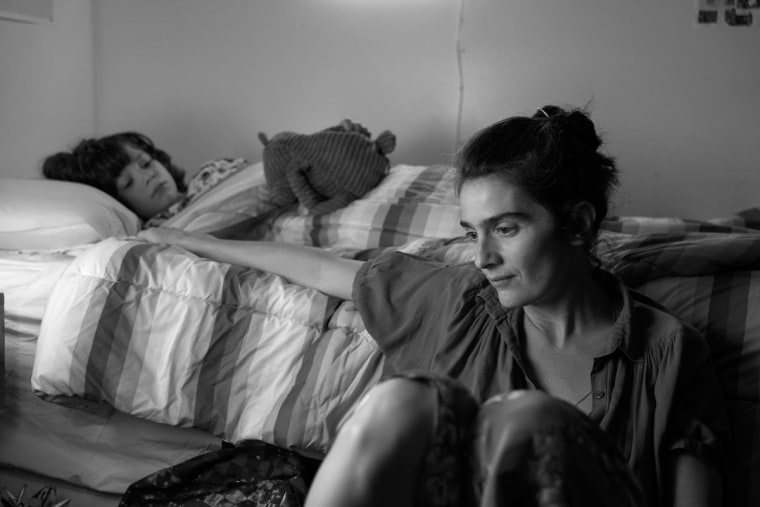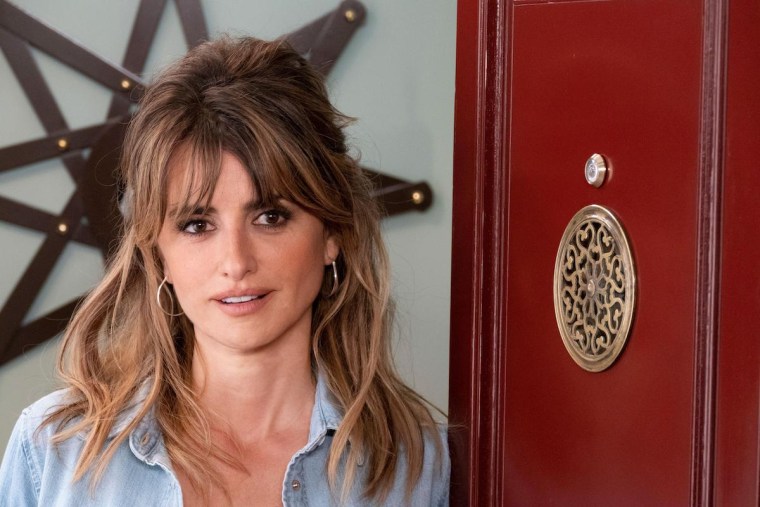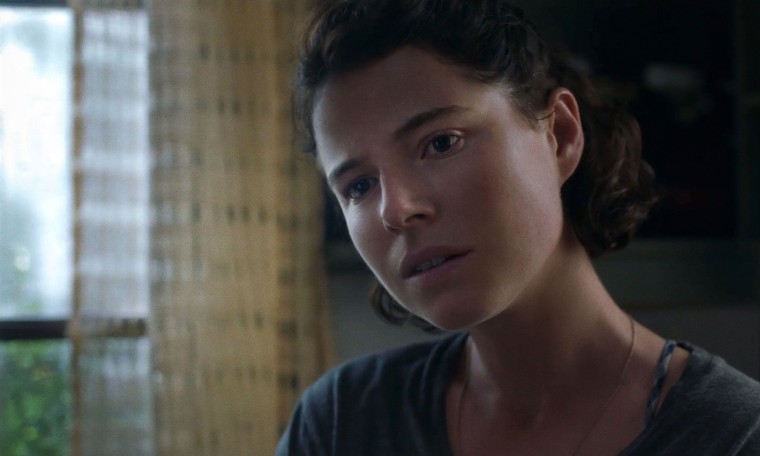Parenting is tough. In a new monthly column for TODAY Parents, “Can I Just Say,” writer Amil Niazi leans into the messiness of raising humans.
Who gets to be a good mother?
That’s the question many films nominated at this year’s Oscars contend with — and the answer is actually something that looks beyond the limited examples we’ve been offered for so long.
For many years, depictions in major films of a good mom — the "right" kind of mom — were often about unattainable models, a mythical mother figure that few could become, though many might aspire to. It was either Mary Bailey from "It's a Wonderful Life" or Leigh Anne Tuohy from "The Blind Side." We got ever-smiling, ever-present, ever-white, and never truly ruffled women who carried the familial burden on their well-frocked shoulders and rarely complained.
Even as we got more three-dimensional mothers on the small screen, they remained — even in humor — unable to flex past the maternal bond and singular devotion to their kids that we demand from our moms, both real and fictional.

When women were allowed to be more than that in pop culture, they were often held up as examples of the worst kind of mother: cold, overbearing, distant or that most fatal of bad maternal traits... selfish. When we tried to imagine a mom beyond the fairytale of perfection, we got "Mommie Dearest" and "Arrested Development's" Lucille Bluth. Hardly paragons of nurturing, but iconic nonetheless.
Only fairly recently are we willing to grapple with portrayals of motherhood that draw outside the lines in movies, with filmmakers slowly dipping their toes into the messy, chaotic, fractured world of parenting that women occupy.
From Ann Dowd (“Mass”) to Gabby Hoffman (“C’mon, C’mon”) to the Oscar-nominated performances of Olivia Colman (“Lost Daughter”), Jessie Buckley (“Lost Daughter”) and Penelope Cruz (“Parallel Mothers”), it’s been a banner year in film for the complicated mother. Although it has to be said that while all of these portrayals tug at the fabric of how motherhood is seen by so many, it’s also still glaringly white, once again leaving women of color out of the equation. So even as our vision of parenting progresses, there are still necessary gains to be made.
Only fairly recently are we willing to grapple with portrayals of motherhood that draw outside the lines in movies.
There’s never been a more receptive time for this more raw, honest portrait of motherhood. The pandemic put aside any illusions about what it really takes to raise children today, to tend to work and care and all of the invisible labor that seams the two together. Many mothers may have disappeared from the workplace, but their screams about why and about how untenable things had become were louder than ever. Whether you were a parent or not, there was no escaping their pleas for something better, something more. Seeing that discomfort and disillusionment in films that were willing to treat these feelings as parts of a whole, rather than an indictment of the person at its core, is refreshing — and more than that, necessary.
The most obvious example from the past year is Olivia Colman’s Leda (“Lost Daughter”). Alone on a Greek paradise, Leda encounters a young mother, played by Dakota Johnson, who transports her back to those often grueling early days of parenting when you struggle to hold all the different versions of yourself together. For Leda, one version — the academic for whom children are not necessarily part of the story — is struggling to adapt to mothering, overwhelming and demanding of her full self as it is. Eventually she makes a decision that would be vilified in most pop culture depictions, but is treated here by director Maggie Gyllenhaal as something more sticky, more deserving of if not grace, then at least space.

This is Gyllenhaal’s directorial debut, and with “Lost Daughter," she set out to make something that explored all of the parts of motherhood that typically get left out of the picture.
“It’s very difficult, even for adults, to hold the ambivalence of parents and mothers in their mind. And so I think we’ve seen lots of films and television shows where the spectrum of what’s normal is pretty slim,” Gyllenhaal told NPR. In Leda, Gyllenhaal explores both the suffocation and tedium of parenting, but also the tiny pleasures that sustain us, living as small pieces of ourselves we revisit over and over.
It’s not only “Lost Daughter” that plays with this theme. Oscar-nominated performances like Kristen Stewart’s tender, tragic portrayal of Lady Diana in Pablo Larrain’s “Spencer” and Penelope Cruz in Pedro Almodovar’s “Parallel Mothers” both explore maternal devotion, how it can buoy us in darkness in the former and drive us to pervert our sense of right and wrong in the latter.

And though not nominated for an Oscar, in “Mass,” Ann Dowd is equally devastating as the mother of a school shooter meeting the mother (Martha Plimpton) of one of his victims for the first time. While we’ve seen versions of Plimpton's character many times, Dowd’s Linda is a far more complicated and uncomfortable version of the grieving mother. Linda forces us to expand our empathy and stretch the limits of our sympathy, our recrimination and our sense of justice. It’s a performance that will leave you shattered, yet broaden your idea of what mothers owe not just their children, but the world.

Ultimately, no matter who takes the statue home at this weekend’s Academy Awards, mothers have won as we are finally beginning to see a more accurate depiction of the many beautiful, difficult, thorny parts of us that make us in the end, good moms.
